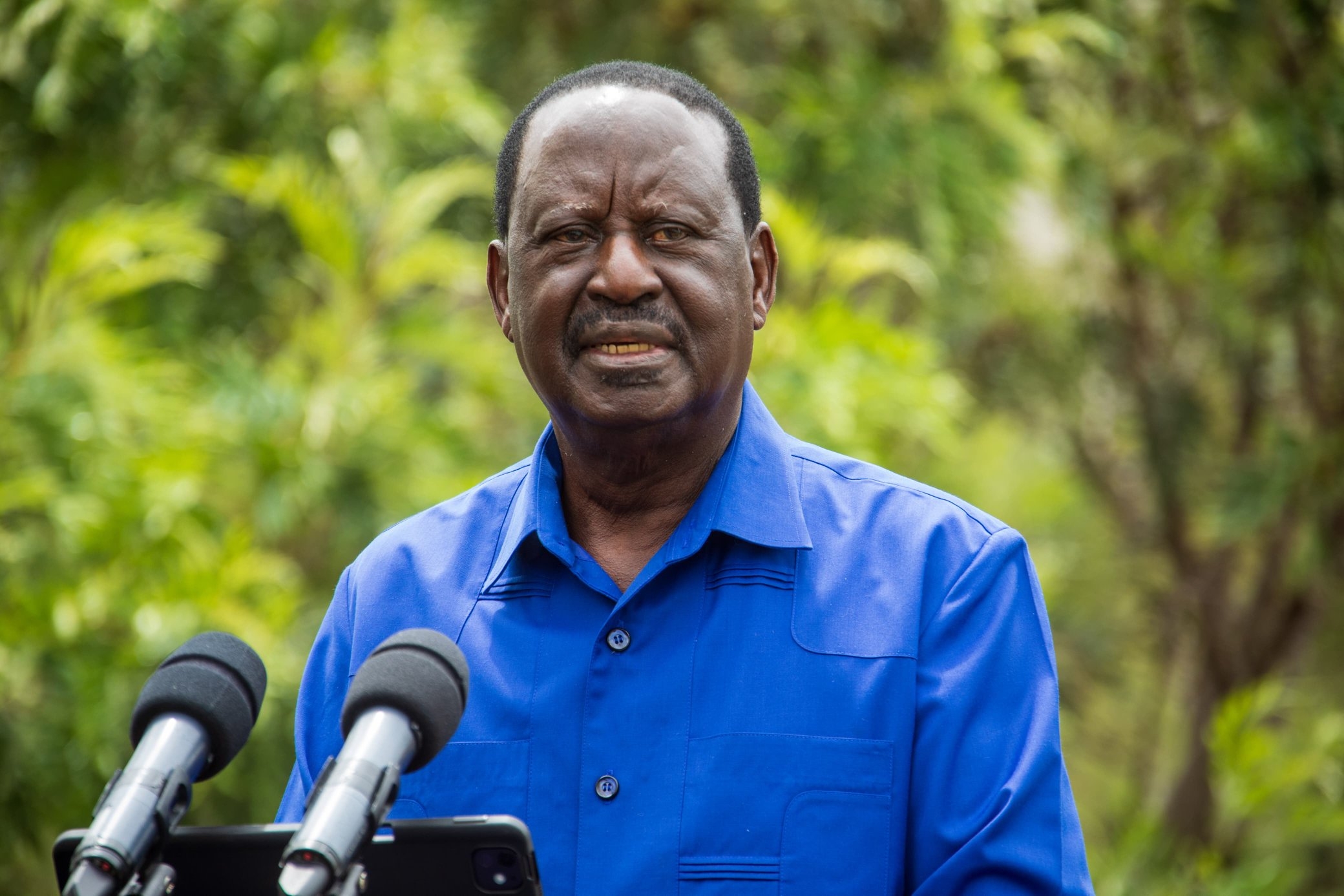Open-air markets provide a means of livelihood for most people in Africa. They provide an intimate connection between the urban populations who need accessible and affordable food and rural farmers who sell their surplus crops.
This symbiotic relationship was disrupted with the advent of the Covid-19 pandemic.
In Abuja and Nairobi, the capital cities of Nigeria and Kenya, respectively, open-air markets were closed down following travel restrictions and lockdown measures imposed by the governments.
These closures disrupted the food supply for urban and local residents, leading to an increase in the prices of some food items, including staples such as rice and maize.
A survey of 11 countries— including Kenya, Ethiopia, Nigeria and the Democratic Republic of Congo — conducted in June by the International Committee of the Red Cross found that 85 per cent of the respondents said the food was available in their local markets. But 94 per cent reported that prices had increased, and 82 per cent said incomes were down, hence low purchasing power.
Market traders, most of whom are women, lost income during the lockdown, automatically pushing them deeper into the poverty spiral. A report released by the UN Women and the United Nations Development Programme indicates that an estimated 47 million women worldwide will be pushed into poverty due to the pandemic, further widening the gap between men and women who live in poverty.
As Kenya and Nigerian governments lifted the lockdown and eased travel restrictions, so, too, did people start ignoring the basic guidelines initially put in place to stop the spread of the virus.
In Nairobi, many markets were closed immediately after the first case of Covid-19 was reported in March. The closure was to enable the fumigation and cleaning of the markets. The closure disrupted the supply of food to urban dwellers and the rural farmers who provide the food.
PACKED LIKE SARDINES
In the open-air markets, vendors and customers are packed together like sardines, making it impossible to maintain the one-metre social distance recommended by the World Health Organisation.
This is a reality Teresa Kinyari describes as ‘risky’ in limiting the spread of the virus.’ Kinyari is a clinical epidemiologist and lecturer at the Department of Medical Physiology, Medical School, University of Nairobi.
“In terms of the public health measures, what is really important is to combine all the measures. So masks are not enough because they will only protect you when you cough or you sneeze. And when you speak or when you shout, the droplets will actually be emitted,” she said.
In Nigeria, where the pandemic is at the community transmission phase, virologist expert Joy Shimang suggests spot testing in open-air markets to minimise the risk of transmission.
She says the Nigeria Centre for Disease Control (NCDC) has learnt a lot about managing infectious disease outbreaks and other public health emergencies from the Ebola crisis in 2014.
However, the management of infectious diseases has been more ‘reactive’ than proactive. She said spot testing carried out in the upmarket, well-developed Utako and Mabushi communities in Abuja should be extended to other areas and particularly open-air markets.
“In the quest to prevent the spread of disease, nothing can be too much. Community testing will provide better information to guide decision/policymakers,” she said.
In Nairobi, visits were made to Gikomba, Kenyatta, Maasai and Toi markets and Wangige market in Kiambu county. In Abuja, Dutse, Karimo, Wuse, Garki, 3rd Avenue and the Farmers’ Market were visited.
Poor sanitation, a common challenge presented in these markets, exacerbates the risk level of transmission. According to the WHO, the provision of safe water, sanitation and waste management are essential to preventing transmission and protecting human health during all infectious disease outbreaks, including Covid-19. But this is not available in most of these open-air markets.
Some of the markets, such as Kenyatta and Wangige, have tanks installed to provide water. Some of the vendors also have handwashing stations. At Wangige , the market vendors have appointed custodians, who ensure that people entering the markets wash their hands and wear masks.
Similarly, in the 14 markets managed by the Abuja Markets Management Ltd, there are handwashing facilities and market security armed with scan thermometers at the entrance to take temperature and ensure those without face masks are not allowed into the market.
PARTIAL PRECAUTIONS
Gikomba market is still a bustle of activity as usual. Only a handful of the vendors and customers were wearing masks properly. Instead, many of them had them hanging round their necks or around the chin. It was impossible to maintain the one-metre physical distance. And although there are handwashing stations still available, not every vendor has one, as was common in the early months of the pandemic.
At Toi Market, a few vendors have set up handwashing stations and one or two even provide sanitisers for their customers. Apart from vegetables, fruits, pulses and fruits, the market is popular with customers who seek bargains for high-end ‘vintage’ (second-hand) clothing items.
“We know we have to keep our customers safe, so if one comes without their own sanitiser, I offer them mine,” Mark Shumbe, 27, says.
There is total disregard for the guidelines issued by the Trade ministry. There are no markings on the ground to ‘create’ the one-meter distance between sellers and another line which buyers should not cross, to ensure they maintain the physical distance to curb the spread of the virus.
At the Maasai Market, traders are able to maintain some distance. Many of them were wearing masks and there were a few handwashing stations.
At the Kenyatta market, vendors are able to maintain some distance as the stalls are not too close to each other. Handwashing stations are also situated at regular intervals in the market, which is supplied with water from a huge water tank. Tessie Njambi, who sells hair and beauty products, was more concerned about her lack of sales. She said the frequent clearing and handwashing would continue post-coronavirus.
Anthony Mbogo works at the Hai-Hai butchery, the eatery made famous in 2016 when President Uhuru Kenyatta patronised the stall and spent Sh21,000 (US$192) on roast meat, traditional vegetables, kachumbari, ugali and soda. He complains business has dropped significantly.
Pre-Covid-19, Mbogo was able to serve at least 200 customers daily. But since March, Mbogo has had to switch to take-away service as the eatery can only accommodate eight people at a time instead of the previous 20 customers at a time.
Dalmas Omollo, a clinical officer at Shining Hope for Communities (Shofco) based at the nearby Kibera informal settlement, says the organisation has been conducting public awareness campaigns at Toi, Kenyatta and other open-air markets in the informal settlements of Kibera, Kawangware and Mathare, where they have also been providing free water to the vendors at Toi, Kenyatta and other markets in the informal settlements.
At Wangige market, custodians have been posted at the market entrances to enforce handwashing and mask-wearing rules. Handwashing stations are provided at the various entry points. Each of the stall owners is also expected to pay Sh50 per month for daily cleaning of the market.
But it has not been gloom and doom for some enterprising individuals, who have taken the opportunity to set up car-boot ‘shops’, where they sell fresh produce sourced from the open-air markets. The downside to this is that they, unlike the regular mama mbogas or open-air market vendors, do not pay any licence fees or taxes.
Countrywide, market upgrading programmes have already started. Multi-storeyed buildings are expected to replace the open-air markets.
In Kwale, the county government installed a walk-through sanitising shower stall at the entrance of the market to disinfect market users. However, the WHO says spraying can be ineffective and that the chemicals are dangerous, do not reduce an infected person’s ability to spread the virus and can cause eye and skin irritation.
Customers and vendors have been encouraged to use M-pesa payments to limit the risk of transmitting the virus through the exchange of cash. Safaricom waived fees on M-Pesa for transfers under Sh1,000 shillings, while another provider, Airtel, has waived charges on all payments through its platform Airtel Money.
The Central Bank of Kenya (CBK) also increased the transaction limits and the amount customers can hold in their mobile wallets. Transaction fees on payments of bills and transferring cash to bank accounts were also introduced to discourage the use of banknotes.
SEEING IS BELIEVING
In Abuja, most of the vendors and their customers know of the virus but do not believe they can be affected since they do not know anyone who has been infected or recovered from it.
“I don’t believe coronavirus is in Nigeria because, since March, I haven’t heard or seen anyone contract the virus. The government only talks about it and the numbers keep increasing in the news, but I don’t see it,” Yusuf Ahmad, a vegetable and provisions trader in 3rd Avenue market, Gwarimpa, says, while accepting delivery of new stock from another trader. Neither of them were wearing masks.
The country is ranked 93rd out of 117 qualifying countries in the 2019 Global Hunger Index, indicating an acute level of hunger in the country. Due to the pandemic, an estimated seven million people are experiencing acute hunger, the 2020 Global Report on Food Crises says.
Emmanuel Peter, a regular customer at Dutse market shopping, says his immediate concern is to get the most food he can get with the little money he has. Peter believes his immune system is strong enough to weather the virus if at all he gets infected.
“Covid-19 is just like malaria, which has come to stay. There are many other problems facing Nigeria, not just this disease. Look around you, everyone is feeling cool. They should leave us alone and stop disturbing us,” Peter said, referring to the daily update about the virus.
E-commerce platforms have flourished due to the pandemic and the ensuing lockdowns and travel restrictions. For example, Nigerian traders have been encouraged to use Kassuwa.com, a platform that provides an avenue for customers to access goods they would ordinarily visit the market to purchase.
Eazi Pizi fruits and vegetables, run by three young Kenyan women, source their fresh produce from the open-air markets and then deliver it to their customers, who place orders on phone or through their social media platforms. These platforms are not accessible to the ordinary citizen, and that is why they continue to throng the open-air markets.
For most open-air market traders, the risk of their families going hungry and slipping further into poverty far outweighs any fears they may have of contracting the virus.
To minimise these spaces becoming hubs of infection, the government has to robustly engage in the redesign of these markets to provide users with regular water and sanitation services, waste management. Regular testing will also ensure the spread of the virus is minimised.
This report was supported by the Africa Women Journalism Project (AWJP) in partnership with the International Centre for Journalists (ICFJ).












![[PHOTOS] Ruto present as NIS boss Noordin Haji's son weds](/_next/image?url=https%3A%2F%2Fcdn.radioafrica.digital%2Fimage%2F2025%2F11%2Ff8833a6a-7b6b-4e15-b378-8624f16917f0.jpg&w=3840&q=100)




